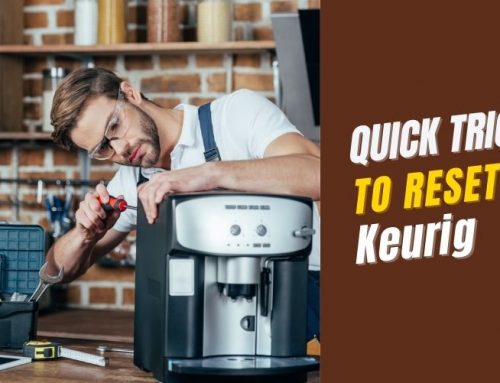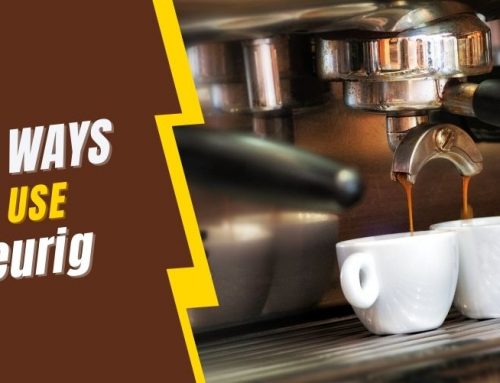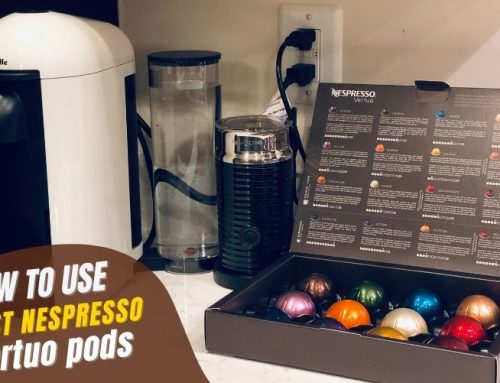For best tasting espresso, you can’t afford to compromise on the quality of the water used in the coffee machine. Water softener for coffee machine has a high calcium and magnesium content, then you would call it hard water. But if the content of these minerals is low, then it is called soft water.
Why does it matter if your water is hard or soft when it comes to your coffee machine? It matters more than you think! Hard water has a characteristic taste and other properties that make it unfavourable in a coffee machine. But then, you would not want water utterly devoid of these minerals either!
Small mineral content is necessary for your espresso to taste good, while a significant mineral content is not. So you need a kind of midway concentration that weighs more towards the softer side. So how do you get soft water? This article is all about the answer: A water softener!
Water Softener for coffee machine
You can get a water softener for your coffee machine and get rid of all the unwanted minerals in the water in your coffee machine. A coffee machine water softener is a filtration cartridge or device that removes excessive calcium and magnesium levels in hard water.
As hard water passes through such a Water Softener, the function filters out the hard water minerals. The softened water exits the system to flow through pipes and will enter the coffee machine.
If you ask us, we believe that every professional and home espresso machine should come with a Water Softener as standard equipment! Especially if you live in areas with excessive hard water. Water softeners lower the quantity of calcium and magnesium ions in hard water and make it emerge softer.
Calcium and magnesium carbonates have the tendency to settle on as adhering particles on pipe surfaces, particularly on the heat exchanger surfaces of espresso machine heaters. The layer that forms as a result of this can obstruct water movement throughout the machine and even cause a foul or odd taste in your coffee.
Why are water softeners important and harmful effects of hard water
You definitely need a water softener to get things going. But why are we enemies of hard water?
Hard Water contains numerous types and quantities of minerals unless it’s been purified. Dissolved solids, chemicals, as well as other kinds of sediments are typical examples of the components of hard water. You’re probably wondering why we even feel the need to get rid of hard water in the first place.
Overfilling problem
Soft water in a coffee maker is always recommended with trace or moderate amounts of minerals for good taste. Scale on a water level sensor on the inside of the coffee machine boiler can induce the system to believe the boiler needs to be filled.
The water level sensor informs the machinery of the quantity of water in the boilers. Now when there is limescale on the probe, it might lead the machine to think that it needs filling even though it doesn’t! So the coffee machine starts filling itself and overfills and over time leads to damage.
Damage to pipes
Well, hard water has other effects too than simply affecting the flavour of your espresso; it can also cause serious harm to your pipework and equipment as a result of buildup. This damage will not occur immediately but will take place over the course of time eventually as more and more mineral deposits arise and build up. Hot water can push those contaminants to the forefront, allowing the scale to form on the pipes in your coffee machines and hence leading towards their demise.
Replacements and maintenance work needed
If these pipelines become obstructed, you may have to deal with a great deal of replacement and maintenance costs. So when it comes to machine upkeep, hard water is a major no-no.
When limescale formation is discovered in one region, it’s a sign that the entire water system and numerous linked parts are affected by it. This can lead to a slew of problems, as well as highly costly repairs.
There’s really no assurance that a mechanic or even a skilled professional will be able to get rid of all of the accumulated limescale and mineral formation and prevent future problems until you have an upgrade.
If you think you’ve got a high-end machine and it won’t be able to come across such issues, then you’re wrong there because limescale can affect even the best coffee machines. Even if your espresso machine is equipped with one of the most impressive features and has the best parts, the parts can only perform to their full potential if they are not hindered by mineral buildup.
So we stress the fact that it is always better to not have limescale in the first case because getting rid of it entirely from the pipes is not easy. Limescale-free coffee machines can function for years with no maintenance. It is far cheaper and simpler to avoid limescale from forming than it is to remove it
Check out this video to see how water filtration can improve your coffee and espresso flavor, and protect your equipment.
Frequently Asked Questions
-
-
Can’t I just descale my coffee machine?
While descaling may be one way to get rid of limescale, it isn’t always a good choice. There are different kinds of limescale, and the acid used in descaling might not be effective in dissolving some types of limescale. Also, If descaling is performed too vigorously, the brass fittings will corrode, and toxic metals like lead will be discharged into the coffee machine, which has a variety of harmful effects.
It’s also near impossible to get rid of limescale completely using descaling, and you can damage some critical parts of the coffee machine
How should I keep my coffee machine healthy?
We highly recommend getting a water softener that is recommended by professionals. While water softeners cannot eliminate hard water 100%, they are still very effective in keeping your machines free of limescale.
-
Are there any advantages and disadvantages of a water softener?
Hardness-causing ions are removed by water softeners and water softening equipment. In a nutshell, you can minimize machine depreciation by reducing the quantity of scale that can accumulate due to the hard water.
Water softeners replace the mineral ions with sodium ions, potentially increasing the salt level of your espresso. That salt may alter the flavour of the coffees in a negligible amount. If your hard water is creating line corrosion, a water softener system may be the best choice for your company.
-
Subscribe to our newsletter
Subscribe to get free access to our best content every week without any spam.



